Mago chaduke is a delightful and traditional Japanese dish that combines the fresh flavors of fish with the comforting simplicity of rice and hot broth. Perfect for summer when fresh horse mackerel is in season. Dive into our guide to discover more about this cherished recipe and learn how to create it at home.
What is Mago chaduke?
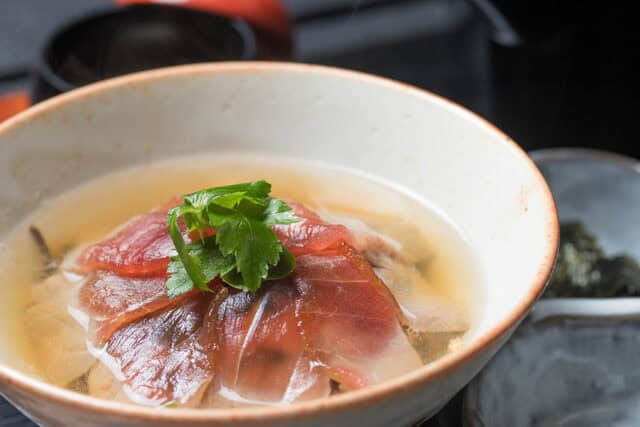
Mago chaduke (まご茶漬け) is a traditional Japanese dish, particularly popular in Shizuoka Prefecture. The term “mago” means “grandchild,” and “chaduke” or “ochazuke” refers to a dish where tea, broth, or hot water is poured over cooked rice, often with various toppings. In the case of major chaduke, it typically involves fresh fish, such as sea bream (tai), marinated in a soy sauce-based mixture. The marinated fish is then placed on top of a bowl of rice, and hot green tea or dashi (Japanese soup stock) is poured over it. The dish is also often garnished with nori (seaweed), sesame seeds, wasabi, and sometimes pickles or other condiments.
Mago chaduke History

Mago chazuke, originally a fisherman’s dish, was widely established as a local delicacy. They mainly eaten around the Boso Peninsula. However, a similar dish is also found in Shizuoka Prefecture, and variations of it appear in fishing towns across Japan, suggesting its commonality in bay areas regardless of region. Traditionally enjoyed on boats during fishing trips, mago chazuke means “eat quickly without hesitating”. Hence, reflecting its role as a convenient meal between fishing tasks. The dish involves pounding fresh horse mackerel, placing it on rice, and pouring hot tea or water over it, making it easy to prepare at home and a delicious way to savor the flavor of the fish.
Mago chaduke FAQ
- How do Mago chaduke tastes like?
Mago chaduke offers a harmonious blend of flavors and textures. The fresh, marinated fish provides a delicate, slightly salty, and umami-rich taste. Then, balanced by the savory depth of the soy sauce-based marinade.
- How to enjoy Mago chaduke?
Mago chazuke is typically enjoyed at home during the summer when fresh horse mackerel is available. To prepare it, place pounded horse mackerel on top of rice and pour hot water, tea, or dashi broth over it. The dish is seasoned with soy sauce and wasabi. Besides horse mackerel, variations of mago chazuke can be made using raw fish such as tuna and yellowtail
Mago chaduke Recipe
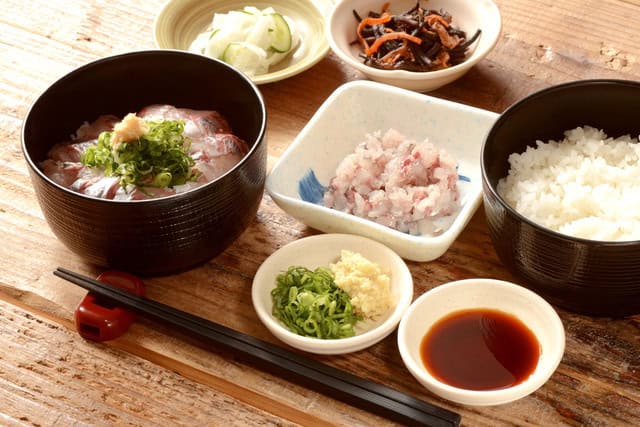
Mago Chaduke Ingredients
| Ingredients for one person | Measurements |
|---|---|
| Rice (optional) | 100g |
| Edible chrysanthemum | 2g |
| Horse mackerel | 50g |
| Pickled cucumber and carrot | 10g |
| Salt | 2g |
| Soy sauce | 4g |
| Shredded seaweed | 2g |
| Perilla leaves | 2g |
How to make Mago chaduke?
Place rice in a bowl, season with salt, and top with filleted horse mackerel (or other fish), shiso leaves, and optional edible chrysanthemums for color.
If you are using horse mackerel with the head and tail still attached, you will need to fillet it and remove the bones beforehand.
Prepare a stock using fish bones, bring to a boil, skim off scum, and simmer for about 10 minutes. Pour the hot stock over the ingredients, drizzle with soy sauce. Let the heat slightly cook the fish to enhance its flavor and texture.
Recommended Restaurants for Mago chaduke
Kaneshichi Suisan (カネシチ水産)
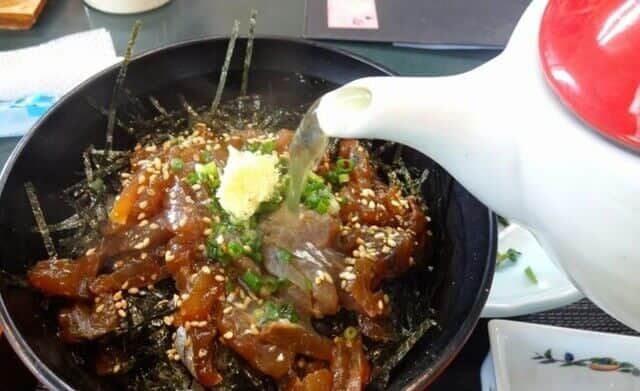
This restaurant makes Mago Chazuke with fresh horse mackerel. You can marinate the local fish and pour dashi tea over it. It doesn’t taste good if you mess around with it. So, after pouring the tea over it, you should eat it immediately.
Summary

In conclusion, mago chazuke is a dish that beautifully highlights the flavors of fresh fish and the comforting essence of rice meal. We hope this article has deepened your understanding of mago chazuke and inspired you to try making it yourself.
You can check some Japanese vegetable dishes that we know you would like to try too.
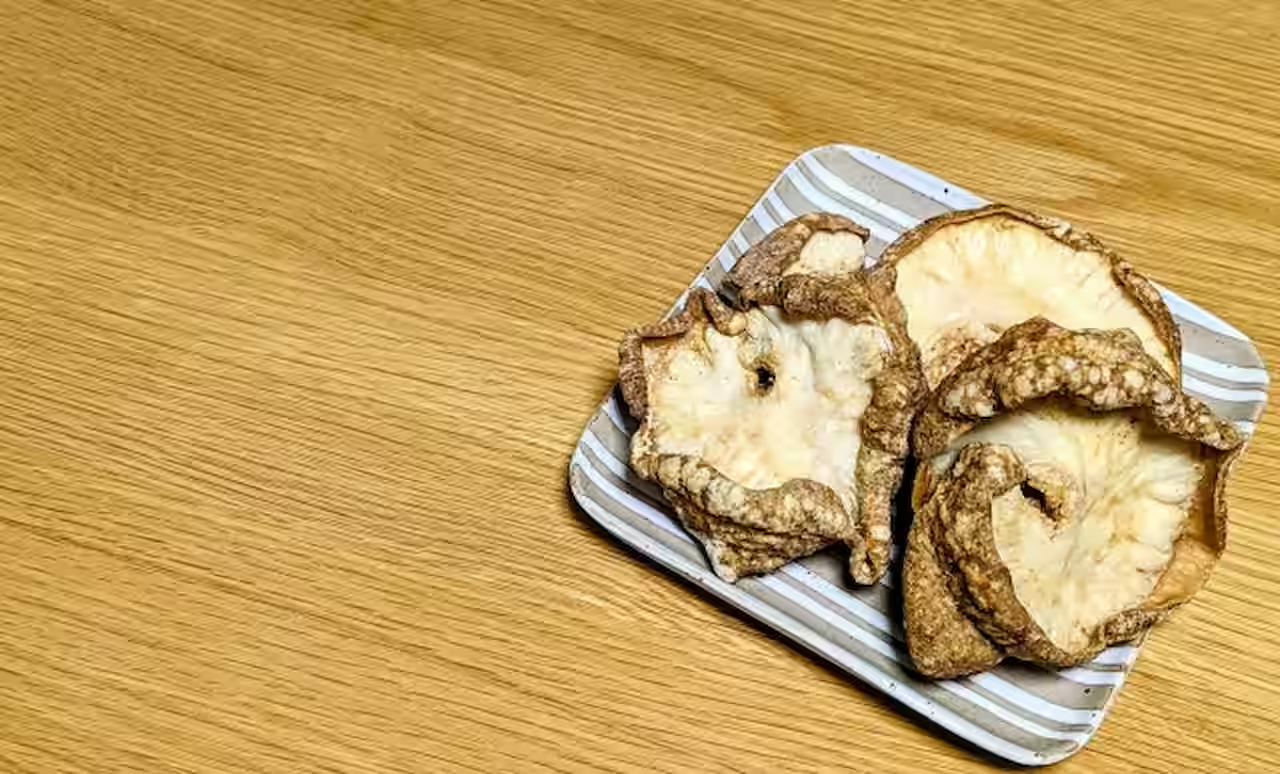

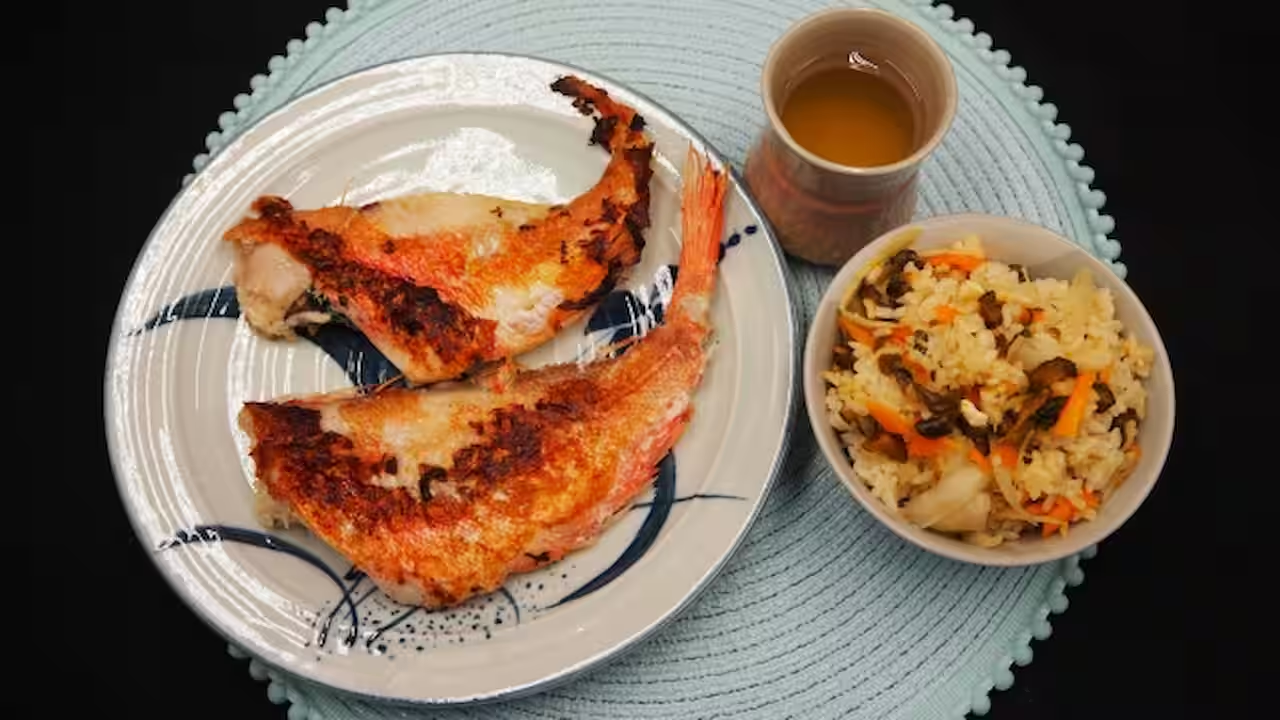
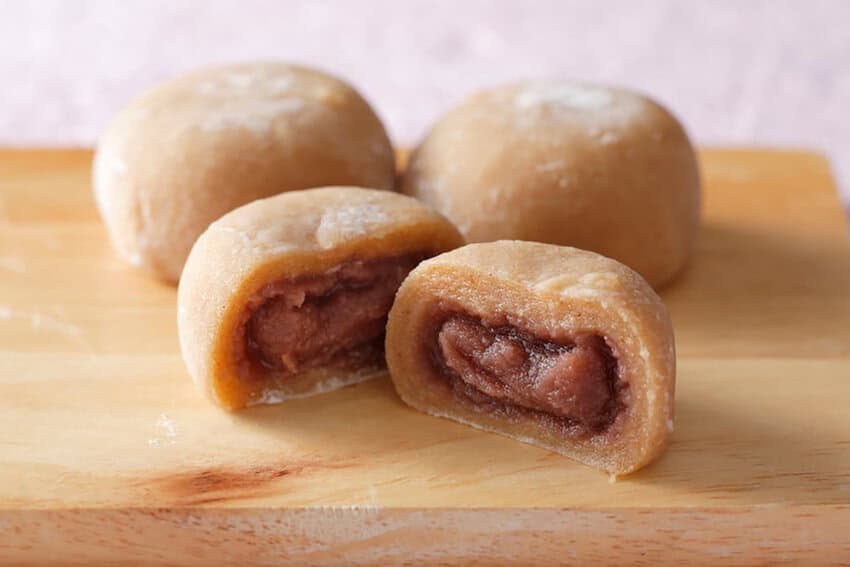
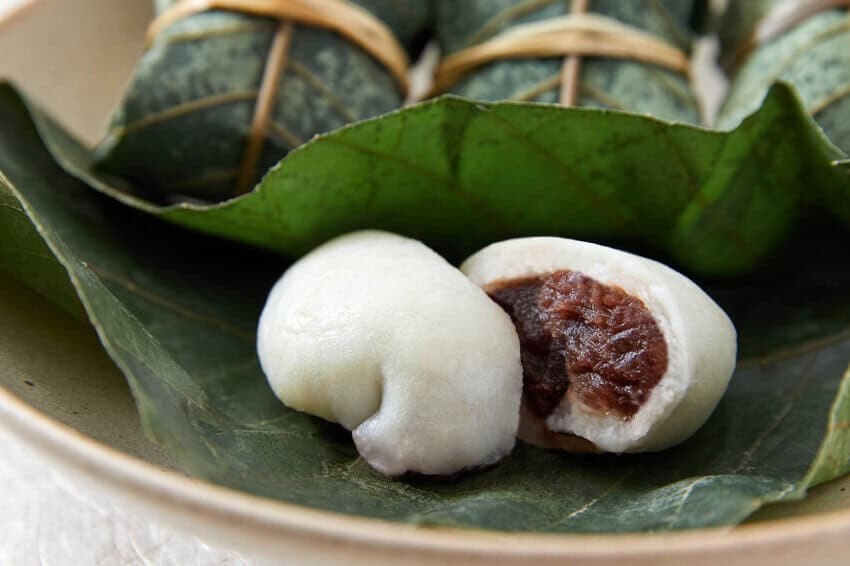

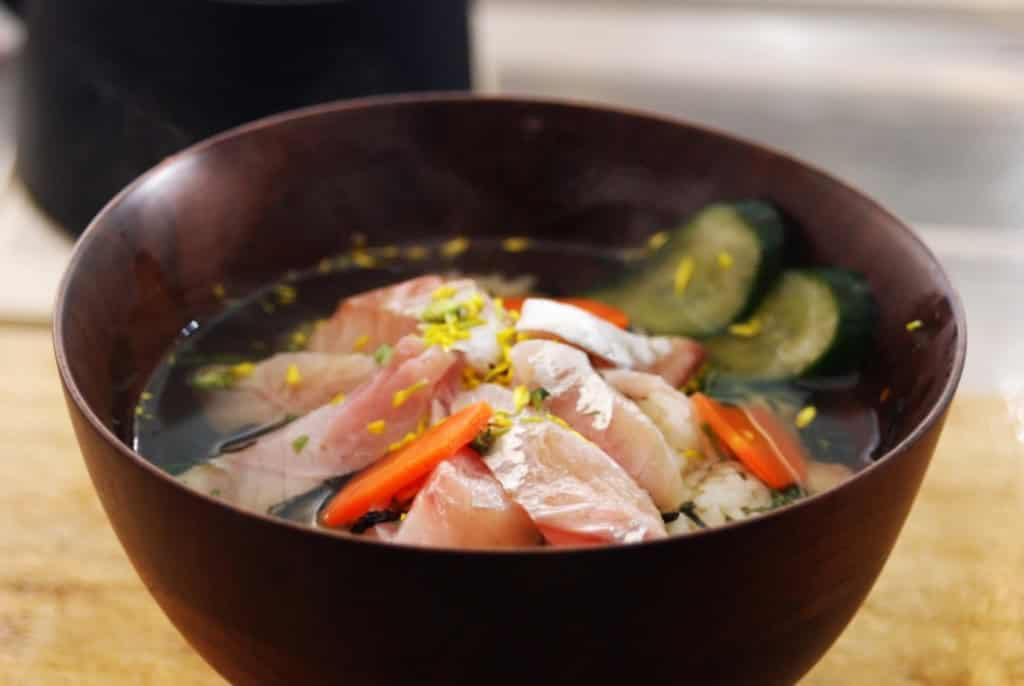
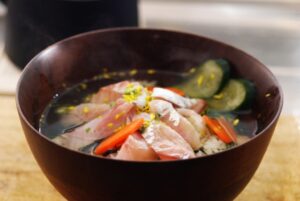
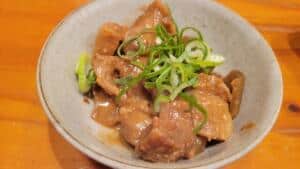
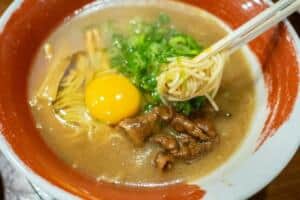
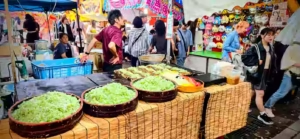
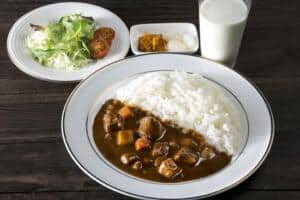
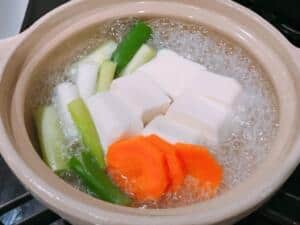
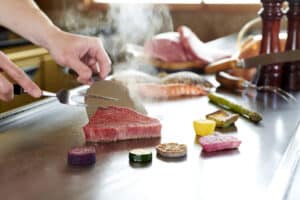
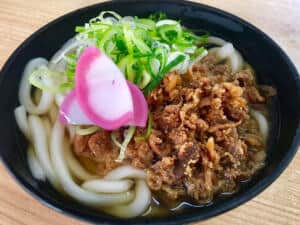
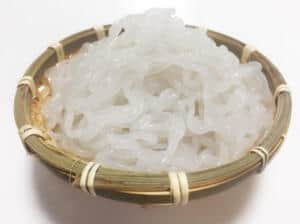
Comments